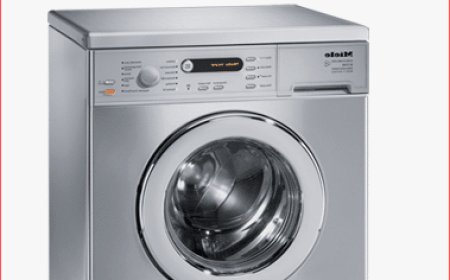Cape Cod Pool Repair Tips for Cold Weather
Cape Cod Pool Repair, with its picturesque coastline and charming towns, is a beloved summer destination.

Cape Cod Pool Repair, with its picturesque coastline and charming towns, is a beloved summer destination. Many homeowners here enjoy the luxury of a swimming pool to cool off during the warm months. However, as the seasons shift and cold weather approaches, pool maintenance and repair become critical to protecting your investment.
Cape Cods chilly, often harsh winters can take a toll on pools, making proper winterization and repair essential. Heres a comprehensive guide on Cape Cod pool repair tips for cold weather to help you safeguard your pool through the colder months and ensure its ready for use come spring.
Understanding the Challenges of Cold Weather on Pools
Before diving into specific repair tips, its important to understand how cold weather affects pools. Water expands as it freezes, which can cause pipes to crack or burst. The freeze-thaw cycle can damage pool surfaces, including plaster, tiles, and liners.
Equipment such as pumps, heaters, and filters is vulnerable to freezing and may fail if not properly winterized. Additionally, heavy snowfall or ice buildup can put physical stress on pool covers and surrounding infrastructure.
Cape Cod Pool Repair, the combination of cold air, moisture, and occasional strong winds, means that pool owners must be particularly vigilant to avoid costly repairs.
1. Properly Winterize Your Pool
Winterization is the most important step in protecting your pool during Cape Cods cold months. This process involves preparing the pool and its equipment for extended periods of inactivity and freezing temperatures.
Lower the Water Level: Reduce the water level below the skimmer to prevent water from freezing inside and damaging the skimmer and plumbing.
Drain and Blow Out Pipes: Use an air compressor to blow out water from all pool plumbing lines to prevent freezing and cracking.
Add Antifreeze: Use pool-safe antifreeze in the plumbing lines to provide extra protection.
Clean and Balance Water: Before closing, thoroughly clean the pool and balance the water chemistry to prevent algae growth and scale buildup.
Use a Quality Pool Cover: Invest in a durable, weather-resistant cover designed for winter use. This will protect the pool from debris, reduce evaporation, and help insulate the water from freezing temperatures.
2. Inspect and Repair Pool Equipment
Cape Cod Pool Repair, Cold weather is tough on pool equipment. Before closing your pool for the winter, inspect pumps, heaters, filters, and other machinery.
Check for Leaks or Cracks: Look for visible signs of wear or damage. Small leaks can become major issues when water freezes and expands.
Service the Heater: Clean and service your pool heater. Turn it off and drain it if its not designed to withstand freezing temperatures.
Lubricate Moving Parts: Apply lubricant to pump seals and other moving parts to prevent them from drying out or cracking.
Remove and Store Electronics: Disconnect and store electronic components like timers and control panels indoors if possible.
3. Repair Cracks and Surface Damage Early
Cape Cod pools often feature plaster, concrete, or vinyl liners that can crack or deteriorate due to cold weather stress. Addressing surface damage before winter helps prevent it from worsening.
Patch Small Cracks: Use a pool surface patching compound to repair minor cracks and chips.
Resurface If Needed: For extensive damage, consider resurfacing your pool in the fall before closing.
Check Vinyl Liners: Inspect for tears or loose seams. Small tears can be patched, but larger damage may require liner replacement.
4. Maintain Pool Covers
Your pool cover is your first line of defense against winter damage. Keep it in good condition to avoid problems.
Remove Debris Regularly: Clear leaves, twigs, and snow from the cover to prevent stretching or tearing.
Check for Tears: Repair any small holes or rips promptly with patch kits designed for your cover material.
Ensure Proper Fit: A tight-fitting cover prevents debris and wildlife from entering the pool.
Use Cover Pumps: Install a cover pump to remove excess water from snow or rain accumulation.
5. Prepare for Snow and Ice
Cape Cod Pool Repair Winters can bring significant snow and ice, which pose unique risks to your pool.
Remove Heavy Snow: Use a soft broom or brush to gently clear snow off the cover. Avoid using sharp tools that can puncture the cover.
Prevent Ice Build-Up: Use floating pool heaters or aerators designed for winter to keep a small section of the water moving and prevent ice from forming directly on the surface.
Check the Surrounding Area: Remove any branches or debris that might fall onto the pool during storms.
6. Monitor Water Chemistry During Winter
Even in winter, water chemistry matters. Proper chemical balance prevents corrosion and scaling, protecting your pool surfaces and equipment.
Test Water Before Closing: Make sure pH, alkalinity, and calcium hardness are within recommended ranges.
Add Winterizing Chemicals: Use algaecides, shock treatments, and other winterizing chemicals as per manufacturer guidelines.
Test Periodically: If accessible, test your pool water periodically during winter and adjust chemicals if necessary.
7. Plan for Early Spring Inspection and Repairs
Winter damage often becomes apparent once the pool is reopened in spring. Scheduling an early inspection allows you to address issues before the swimming season begins.
Inspect Pool Surfaces: Look for cracks, discoloration, or liner damage.
Check Equipment: Test pumps, heaters, and filters for proper function.
Address Leaks Quickly: Repair any leaks immediately to prevent water loss and further damage.
8. Hire Local Professionals for Complex Repairs
Some Pool Tile and Coping and winterization tasks require specialized knowledge and tools, especially in the unique Cape Cod environment.
Pool Service Companies: Local professionals understand the regional climate and can provide tailored winterization services.
Licensed Technicians: For heater repairs, plumbing work, or resurfacing, hire licensed pool technicians.
Emergency Repairs: Keep contact information for local pool repair companies handy in case of emergency issues during winter.
Final Thoughts
Caring for your Cape Cod Pool Repair weather requires a combination of thorough winterization, timely repairs, and vigilant maintenance. Taking these steps helps protect your pool from the damaging effects of freezing temperatures, snow, and ice, saving you money and stress in the long run.
By investing a bit of time and effort before winter sets inand planning for spring inspectionsyoull ensure your Cape Cod pool remains a beautiful, functional oasis year after year. Whether you prefer to do the work yourself or hire local professionals, following these winter repair tips is the key to enjoying your pool season after season without interruption.








































